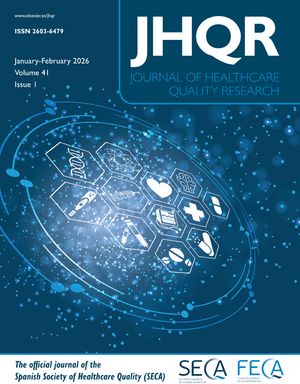La ética de las organizaciones es considerada el segundo estadio de desarrollo de la bioética porque busca superar el marco casuístico de la bioética clínica, que se centra en el paciente considerado de manera individual, y avanzar hacia una reflexión más centrada en la manera en que la estructura y el funcionamiento de las organizaciones sanitarias condiciona los conflictos éticos o hace surgir otros nuevos. Nacida en la década de los 90 en los EE.UU. como resultado de una conjunción de fuerzas diversas, entre las que destaca el auge de la medicina gestionada, el fracaso de la reforma sanitaria del presidente Bill Clinton, la influencia de la ética de los negocios o de la empresa (business ethics) y el agotamiento del modelo de comités asistenciales de ética vigente hasta hoy, la ética de las organizaciones debe mucho a la Joint Commission for Accreditation of Healthcare Organizations (JCAHO) que, en 1995, la introdujo entre sus criterios de acreditación. El presente trabajo realiza un repaso de estos condicionantes históricos, da cuenta de la producción bibliográfica más importante sobre el tema y apunta algunos elementos conceptuales. Entre estos últimos se encuentra su ubicación en el marco de un paradigma de corte sistémico, un repaso sobre las definiciones más relevantes de “ética de las organizaciones sanitarias”, una referencia a sus posibles contenidos, y una introducción a sus herramientas, con especial referencia a los retos que supone este nuevo marco para los comités de ética. En la última parte se hacen algunos apuntes sobre la relevancia que tiene para España este enfoque y sobre las condiciones adecuadas para su desarrollo.
Organizational ethics is viewed as the second stage in the development of bioethics because this branch of ethics seeks to transcend the casuistic framework of clinical bioethics, which is based on the patient as an individual, and concentrates on how the structure and functioning of healthcare organizations conditions ethical problems or causes new ones to arise. Organizational ethics first appeared in the 1990s in the USA as a result of the combination of several factors such as the growth of managed care, the failure of the Clinton Plan, the influence of business ethics, and the redundancy of the traditional Ethical Committee model. In 1995 the Joint Commission for Accreditation of Healthcare Organizations (JCAHO) added new standards to the Accreditation Manual that dealt with organizational ethics and, in doing so, created this new branch of bioethics.
This article analyzes the history of the development of organizational ethics, describes the most pertinent literature in the field and discusses certain concepts such as the systemic paradigm within which organizational ethics is viewed, the various definitions of the term “ethics of healthcare organizations” and its possible contents, and introduces its tools with emphasis on the challenges that this new framework poses to ethical committees. Finally, we discuss the relevance of organizational ethics to the Spanish healthcare system and the conditions required for its development.






